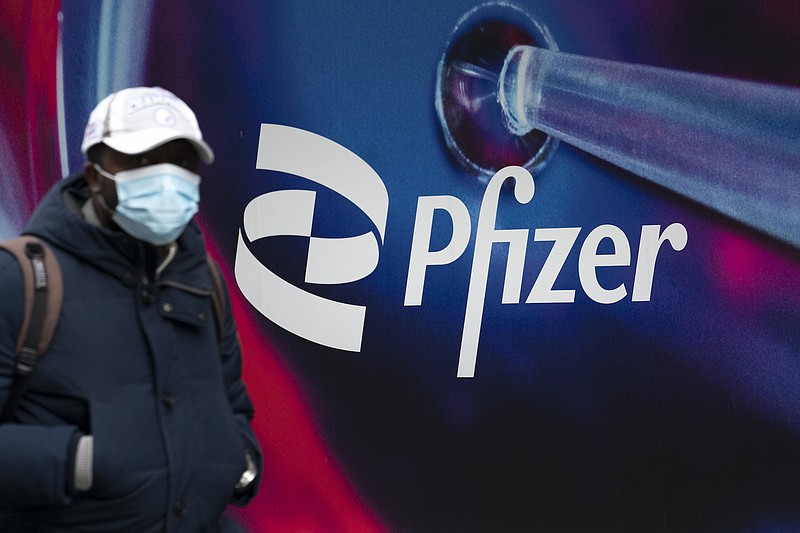As people abandon masks and gather in bigger groups, it's important to remember that COVID-19 is still with us. A new form of the omicron variant called BA.2 is causing another surge, though on a much smaller scale than previous variants. BA.2 is spreading so fast that it's expected to be the dominant form of the disease in Chicago by the end of this month.
Fortunately, most Americans have ready access to vaccines that prevent the worst symptoms. These amazing pharmaceutical products, created in an incredibly short time, have saved millions of lives worldwide and enabled the country to get back to business.
If you haven't yet gotten fully immunized, do so. Now. Stop making excuses, including the latest one we've heard about how Big Pharma is raking in too much money.
Considering the companies' financial incentives, the theory goes, no one should trust them. When they say their vaccines are safe for babies and toddlers, or that a fourth shot may be needed for full protection, well, that's just to put money in their pockets, right?
Here's a news flash: It's OK for people who market blockbuster new products to make a lot of money. In fact, it's crucial, so those people and their competitors will keep it up. And that's why everyone should be celebrating now that vaccines have become profitable again, after many years in the commercial wilderness.
In the 2000s and before, no one was making money off vaccines - not researchers or manufacturers, or pediatricians giving shots.
Then, as now, the research, development, testing and manufacture of vaccines cost big bucks, and the market was much smaller than for other pharmaceuticals. The result was under-investment and high production costs that led to shortages. As the number of companies making vaccines dwindled, federal health organizations pushed for the government to ensure supplies by taking over production.
Fortunately, the market turned around. Demand soared in developing countries, thanks to the World Health Organization, the Gavi public-private vaccine partnership and other groups devoted to vaccinating the poor. On the business side, some new or updated vaccines started making good money for their companies, such as Merck's Gardasil for human papillomavirus.
It's difficult to calculate profit margins, as research costs aren't typically made public, but this much is clear: Vaccines are some of the most cost-effective medical interventions ever.
Fully immunizing a baby saves at least $10 for every dollar spent, a study published in the journal Pediatrics shows, and another study of vaccination in the U.S. between 1994 and 2013 estimates a net savings of almost $300 billion in direct costs and more than a trillion in societal costs. That was before COVID-19 exposed our acute vulnerability to invisible bugs.
We don't know how much Pfizer, Moderna and BioNTech have saved the world so far, but the amount surely eclipses their profits. Yes, these companies have made tens of billions from their COVID vaccines - while at the same time heading off premature deaths and getting the global economy moving again.
These same companies should be doing more to distribute their vaccines in poor and middle-income countries. Inequality in vaccine access is making it more difficult to end the pandemic. Still, a recent push to increase supply by seizing their technology and giving it away to local manufacturers is terribly shortsighted, as it would deter investment in vaccine development at a time of tremendous progress.
The potential exists for new vaccines that not only prevent diseases but cure them. Consider the impact if it became relatively easy to shrink tumors, eliminate allergies and end addictions, or to stamp out long-lasting, stubborn infections like malaria and HIV. Research into new methods of delivery could make it possible for many vaccines to be administered all at once, with no needles required.
Northwestern University recently announced a new study of nanoparticle-based vaccines that appear to work more efficiently than traditional formulations. And National Geographic has been shining a spotlight on "contagious" vaccines that self-spread among wildlife, curbing scourges such as rabies and Ebola. It's a controversial idea, for sure, but the research could head off the next pandemic by stopping animal viruses from jumping to humans, as the coronavirus is thought by many to have done.
Vaccines, finally, are on a roll. Let's make sure we keep the incentives in place to bring about future breakthroughs.
The Chicago Tribune
